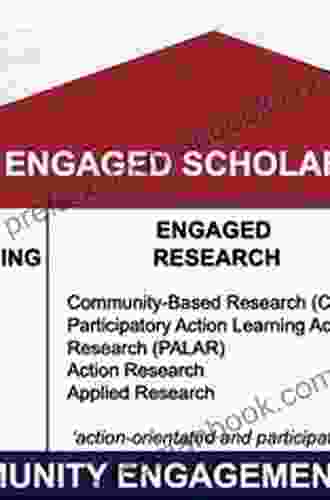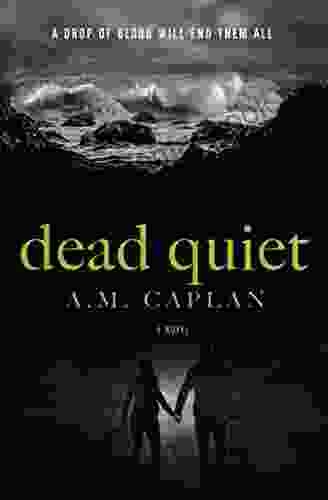Academic Goals and Social Engagement: Scholarship of Teaching and Learning

The Scholarship of Teaching and Learning (SoTL) is a field of study that explores the teaching and learning process in higher education. SoTL scholars use research methods to investigate how students learn, how faculty teach, and how the learning environment can be improved. One of the key themes in SoTL is the relationship between academic goals and social engagement. This article explores how SoTL scholars are using research to understand how social engagement can promote student learning and contribute to the development of socially responsible citizens.
5 out of 5
| Language | : | English |
| File size | : | 4480 KB |
| Text-to-Speech | : | Enabled |
| Screen Reader | : | Supported |
| Enhanced typesetting | : | Enabled |
| Word Wise | : | Enabled |
| Print length | : | 178 pages |
Academic Goals and Social Engagement
Academic goals are the specific outcomes that students are expected to achieve in a course or program. These goals may include cognitive skills, such as critical thinking and problem solving; affective skills, such as empathy and compassion; and psychomotor skills, such as physical dexterity and coordination. Social engagement is the process of interacting with others in a positive and meaningful way. This can involve participating in class discussions, working on group projects, volunteering in the community, or simply getting to know classmates outside of class. Research has shown that social engagement can promote student learning in a number of ways.
- Enhances cognitive development. Social engagement can help students to develop their cognitive skills, such as critical thinking and problem solving. When students interact with others, they are exposed to different perspectives and ideas. This can help them to think more deeply about the material they are learning and to develop more sophisticated arguments.
- Promotes affective development. Social engagement can also help students to develop their affective skills, such as empathy and compassion. When students interact with others from different backgrounds and perspectives, they learn to appreciate the diversity of the human experience. This can help them to become more tolerant and understanding of others.
- Encourages psychomotor development. Social engagement can also help students to develop their psychomotor skills, such as physical dexterity and coordination. When students participate in group projects or volunteer in the community, they have the opportunity to practice these skills in a real-world setting.
In addition to promoting student learning, social engagement can also contribute to the development of socially responsible citizens. When students interact with others from different backgrounds and perspectives, they learn to appreciate the diversity of the human experience. This can help them to become more tolerant and understanding of others. It can also help them to develop a sense of civic responsibility and a commitment to making a positive difference in the world.
SoTL Research on Academic Goals and Social Engagement
SoTL scholars are using research to investigate the relationship between academic goals and social engagement in a number of ways. Some scholars are conducting quantitative studies to examine the impact of social engagement on student learning. Others are conducting qualitative studies to explore the experiences of students who participate in social engagement activities. Still others are developing new pedagogical approaches that incorporate social engagement into the curriculum.
One of the most common quantitative studies in SoTL research is the examination of the impact of social engagement on student learning. This type of study typically involves comparing the academic performance of students who participate in social engagement activities with the academic performance of students who do not participate in such activities. The results of these studies have been mixed, with some studies finding that social engagement has a positive impact on student learning and other studies finding no such impact.
However, a meta-analysis of over 100 studies found that social engagement has a small but significant positive impact on student learning. This means that students who participate in social engagement activities are more likely to achieve higher grades and pass rates than students who do not participate in such activities.
Qualitative studies in SoTL research have explored the experiences of students who participate in social engagement activities. These studies have found that students who participate in social engagement activities report a number of benefits, including increased understanding of course material, improved problem-solving skills, and greater confidence in their ability to succeed in college.
SoTL scholars are also developing new pedagogical approaches that incorporate social engagement into the curriculum. These approaches include service-learning, peer learning, and community-based learning. Service-learning is a teaching method that combines academic learning with community service. Peer learning is a teaching method that involves students learning from each other. Community-based learning is a teaching method that involves students learning in community settings.
These pedagogical approaches have been shown to be effective in promoting student learning and social engagement. For example, one study found that students who participated in a service-learning course reported higher levels of academic achievement, critical thinking skills, and empathy than students who did not participate in a service-learning course.
The Scholarship of Teaching and Learning (SoTL) is a field of study that explores the teaching and learning process in higher education. SoTL scholars use research methods to investigate how students learn, how faculty teach, and how the learning environment can be improved. One of the key themes in SoTL is the relationship between academic goals and social engagement. This article has explored how SoTL scholars are using research to understand how social engagement can promote student learning and contribute to the development of socially responsible citizens.
5 out of 5
| Language | : | English |
| File size | : | 4480 KB |
| Text-to-Speech | : | Enabled |
| Screen Reader | : | Supported |
| Enhanced typesetting | : | Enabled |
| Word Wise | : | Enabled |
| Print length | : | 178 pages |
Do you want to contribute by writing guest posts on this blog?
Please contact us and send us a resume of previous articles that you have written.
 Top Book
Top Book Novel
Novel Fiction
Fiction Nonfiction
Nonfiction Literature
Literature Paperback
Paperback Hardcover
Hardcover E-book
E-book Audiobook
Audiobook Bestseller
Bestseller Classic
Classic Mystery
Mystery Thriller
Thriller Romance
Romance Fantasy
Fantasy Science Fiction
Science Fiction Biography
Biography Memoir
Memoir Autobiography
Autobiography Poetry
Poetry Drama
Drama Historical Fiction
Historical Fiction Self-help
Self-help Young Adult
Young Adult Childrens Books
Childrens Books Graphic Novel
Graphic Novel Anthology
Anthology Series
Series Encyclopedia
Encyclopedia Reference
Reference Guidebook
Guidebook Textbook
Textbook Workbook
Workbook Journal
Journal Diary
Diary Manuscript
Manuscript Folio
Folio Pulp Fiction
Pulp Fiction Short Stories
Short Stories Fairy Tales
Fairy Tales Fables
Fables Mythology
Mythology Philosophy
Philosophy Religion
Religion Spirituality
Spirituality Essays
Essays Critique
Critique Commentary
Commentary Glossary
Glossary Bibliography
Bibliography Index
Index Table of Contents
Table of Contents Preface
Preface Introduction
Introduction Foreword
Foreword Afterword
Afterword Appendices
Appendices Annotations
Annotations Footnotes
Footnotes Epilogue
Epilogue Prologue
Prologue Mia Bowen
Mia Bowen Ron Franscell
Ron Franscell Britteney Black Rose Kapri
Britteney Black Rose Kapri Sara Liao
Sara Liao Annalee G Good
Annalee G Good Dave Bartell
Dave Bartell Misty Adoniou
Misty Adoniou Ted W Lawson
Ted W Lawson Eve Ensler
Eve Ensler John Hutchison
John Hutchison Jaishree Sharad
Jaishree Sharad Jenna Nelson
Jenna Nelson Chardell Moore
Chardell Moore J J Miller
J J Miller Peter Lewis
Peter Lewis Becky Keene
Becky Keene Mark Lawrence
Mark Lawrence Arnita Harpe
Arnita Harpe Toni Lansing
Toni Lansing Tracey Taylor
Tracey Taylor
Light bulbAdvertise smarter! Our strategic ad space ensures maximum exposure. Reserve your spot today!

 Vincent MitchellUnveiling the Enchanting Tale of Plant Reproduction: A Journey through the...
Vincent MitchellUnveiling the Enchanting Tale of Plant Reproduction: A Journey through the...
 Federico García LorcaCatullus: A Poetic Odyssey into the Depths of Love, Loss, and Desire
Federico García LorcaCatullus: A Poetic Odyssey into the Depths of Love, Loss, and Desire
 Alan TurnerThe Dilemma Novel Paris: A Detailed Exploration of Love, Loss, and Redemption...
Alan TurnerThe Dilemma Novel Paris: A Detailed Exploration of Love, Loss, and Redemption... Trevor BellFollow ·17.1k
Trevor BellFollow ·17.1k Gus HayesFollow ·11.7k
Gus HayesFollow ·11.7k Ken FollettFollow ·4k
Ken FollettFollow ·4k Danny SimmonsFollow ·6.7k
Danny SimmonsFollow ·6.7k Mark MitchellFollow ·11.7k
Mark MitchellFollow ·11.7k Theo CoxFollow ·4.1k
Theo CoxFollow ·4.1k Ivan TurgenevFollow ·4.1k
Ivan TurgenevFollow ·4.1k Brent FosterFollow ·11.6k
Brent FosterFollow ·11.6k

 Vincent Mitchell
Vincent MitchellUnveiling the Enchanting Tale of Plant Reproduction: A...
Plants, the silent yet vibrant...

 Sam Carter
Sam CarterDelve into the Enigmatic World of "Relative Murder: A...
In the realm of mystery and suspense, the...
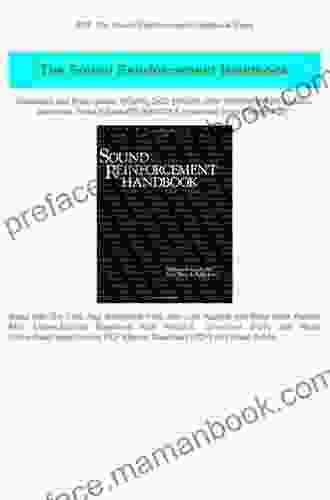
 Richard Simmons
Richard SimmonsThe Sound Reinforcement Handbook: A Comprehensive Guide...
In the realm of live sound engineering, The...
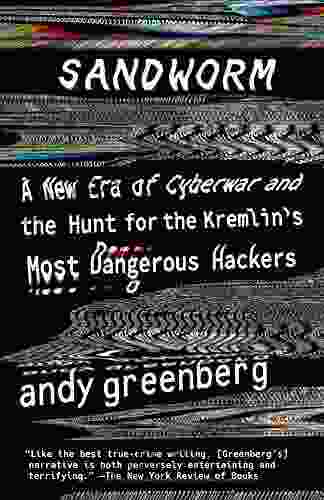
 Leo Tolstoy
Leo TolstoyEnter the New Era of Cyberwar: Unmasking the Kremlin's...
`` Prologue: The Digital...
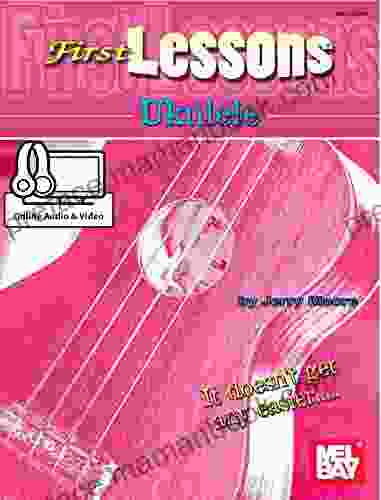
 Brenton Cox
Brenton CoxFirst Lessons Ukulele Bridget Baker: A Comprehensive...
Embarking on a musical journey with the...
5 out of 5
| Language | : | English |
| File size | : | 4480 KB |
| Text-to-Speech | : | Enabled |
| Screen Reader | : | Supported |
| Enhanced typesetting | : | Enabled |
| Word Wise | : | Enabled |
| Print length | : | 178 pages |


